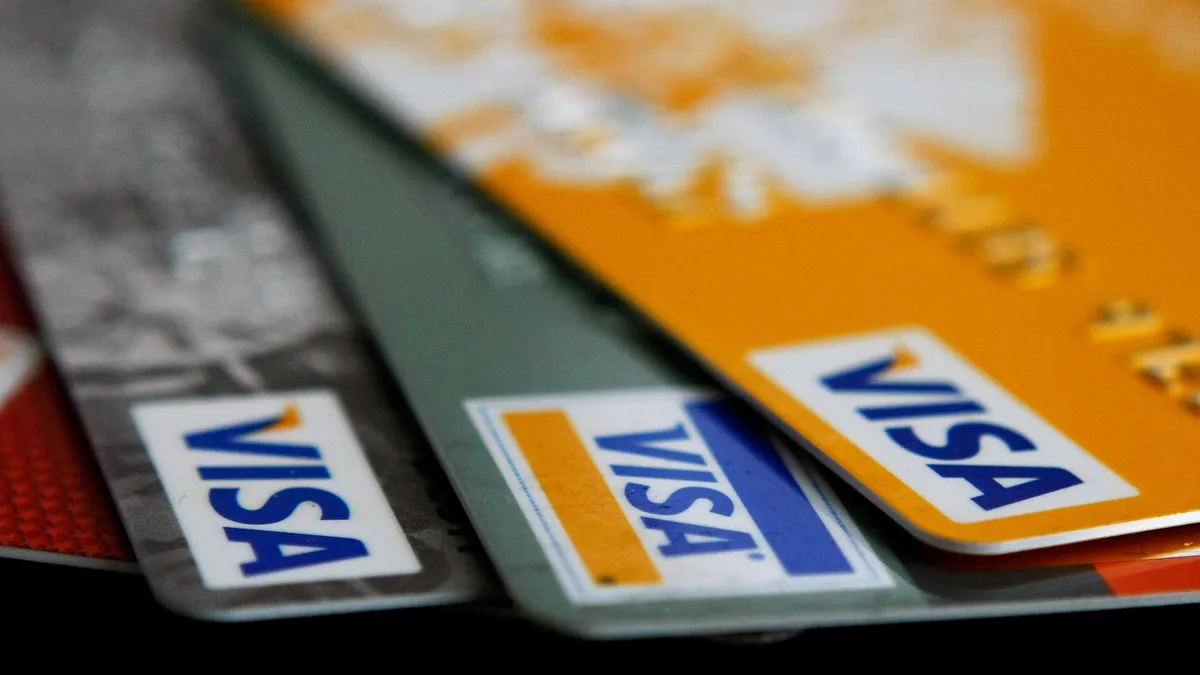Visa preps for US pay-by-bank services (08/2024)
A spokesperson for Visa didn’t immediately respond to a question about when the card network’s pay-by-bank services would start in the U.S. While Visa’s business has long turned on its card services, the San Francisco-based company is increasingly branching out to offer other types of money transfer services, seeking to complement its credit, debit and prepaid card offerings.
✨Get a Dissertation Research Proposal on this Topic
Fill in the form and we will shortly create and send you the research proposal on "Visa preps for US pay-by-bank services " for free.

With pay-by-bank, it can enable customers to make more direct payments, by tapping their financial institutions for funds. As part of the open banking era that has initially taken root in Europe, people and businesses are more often able to bypass intermediaries to make payments from their bank accounts.
While such services can be seen as a competitive threat to Visa’s card business, the company is increasingly seeking to draw such alternatives into the suite of payment services it offers. Its U.S. launch of pay-by-bank services will come as the Consumer Financial Protection Bureau has proposed creating a regulatory framework for allowing more open banking services in the U.S.
In March, CFPB Director Rohit Chopra said the federal agency is in the process of finalizing those rules. The proposal “will serve as a key foundation in the shift to open banking,” he said during a speech, according to the text of his remarks. There will be “less red tape and more seamless switching” when it comes to using digital accounts. The new era will also give consumers more rights to access their data and seek to ensure that data is kept “safe and private,” he said.
Visa’s usual security and reliability will be integrated into the new Visa pay-by-bank services, Forestell said. It will be “a very simple digital experience that you’ll encounter in certain vertical use cases where your seller is going to say, ’Hey, would you like to pay by bank, facilitated by Visa,” he explained at the conference. “It’ll be as simple as clicking that button, authenticating with your bank and the payment will happen,” he said.
He noted that customers will be most likely to encounter Visa’s pay-by-bank services in certain areas where account-to-account payments are increasingly used by customers, often for large payments.
“There are these stubborn categories — think about loan payments, rent payments, life insurance, healthcare, long-term care, education — big, chunky (payments that) tend to be larger tickets, lower velocity payments, where, yes, there’s some degree of card acceptance, but that the penetration rate is relatively low,” Forestell said.
Often those types of payments are made by way of ACH payments. For instance, the Nacha automated payments operation has in recent years been charting an increase in healthcare ACH payments.
Still, Forestell contended Visa will be able to offer pay-by-bank services that are superior to ACH payments.
“That ACH transaction is just a bad transaction — it’s full of friction, it’s got fraud problems” Forestell said. Payments professionals often refer to the digital prompts and hiccups that slow payments as “friction.” “We think we can take that friction away. We think we can provide a safer and more secure, more seamless transaction and add to the overall volume and help our financial institution partners, our seller partners deliver a better experience right alongside cards.”
Visa has already experienced uptake of its pay-by-bank services in Europe. “In the ensuing two years since we’ve owned Tink, we have seen our payment initiation volumes in Europe grow exponentially,” Forestell said, without providing any specific figures.
About ECEBiS
At ECEBiS you are going to understand what will change the trajectory of the financial industry. You will develop a transversal view on the forces that are shaping the future financial industry.
From payments and lending to investment and money management, tech providers are actively shaping the future of the financial landscape - even pushing the boundaries of currency itself. You might evaluate the impact of robo-advising on health management and examine portfolio recommendations from a diversified set of RAs and attempt to identify the factors behind proposed splits between asset classes.
ECEBiS is a platform in academic research on new business models and innovative products. We investigate in fast moving sectors that are reshaping the financial world of tomorrow and pioneering new ways of doing business. We want to attract outstanding ECEBiS students in finance with experiences and exposures, who intend to
Doctorate of Business Administration (DBA) in Finance (online, 3 years part-time)
develop knowledge on challenges that shape the future of financial industry
engage with a program that offers the convenience of online learning with the benefits of accreditation and global reach.
raise awareness on the importance of fintech and sustainability in finance
identify the best practices in the financial industry to spread positive changes
Go beyond the virtual classroom and network with other ambitious executives and entrepreneurs as you expand your credibility and expertise in the world’s most transformative fields.